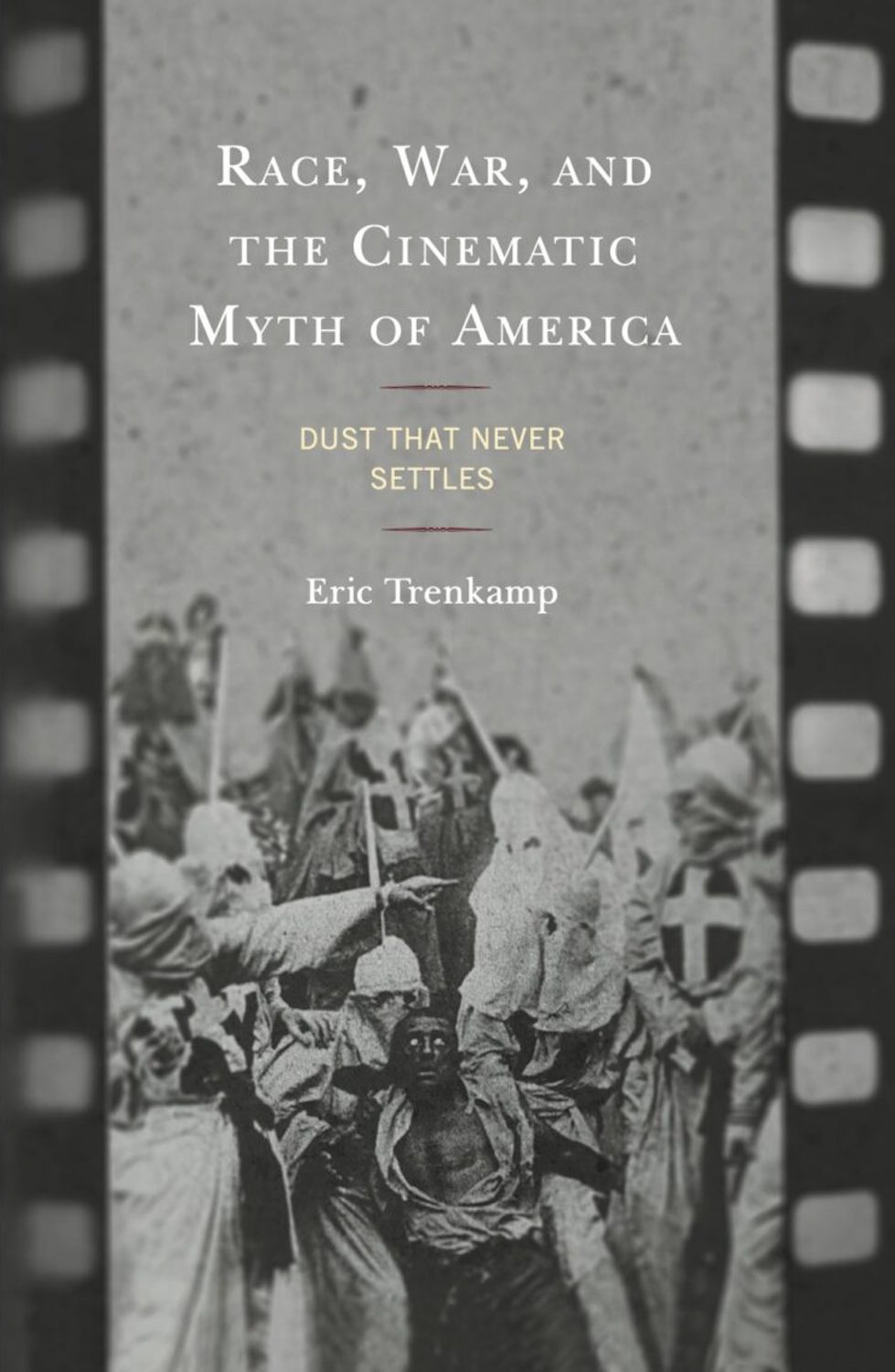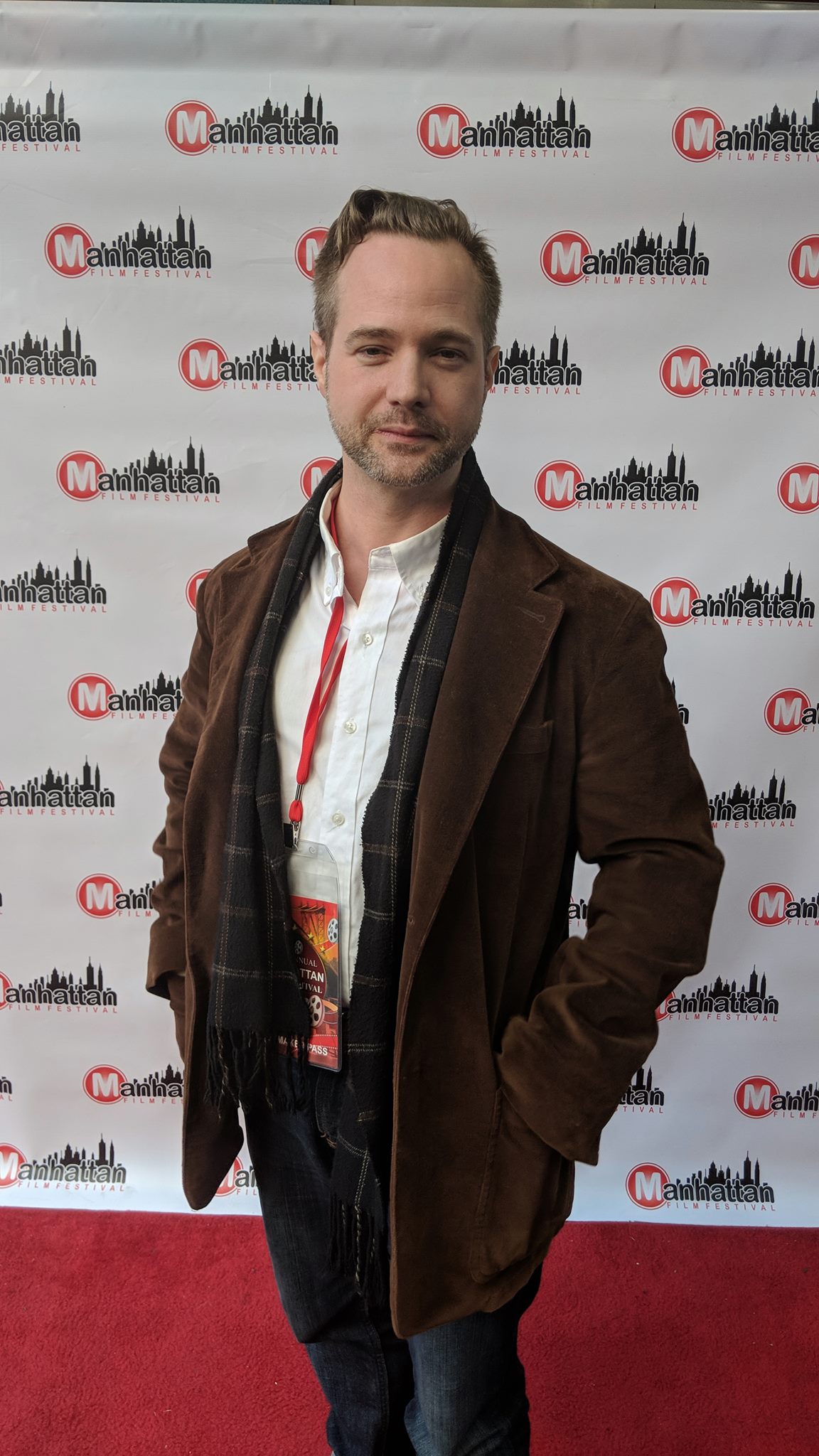Eric Trenkamp, MA Media Studies ’18, has straddled career paths as an award-winning filmmaker and author, creating the feature-length film American Bomber (2013) and a monograph on Hollywood’s history of popularizing white supremacy, Race, War, and the Cinematic Myth of America (Rowman & Littlefield, 2022). A graduate of Pratt’s Media Studies program, Trenkamp also teaches in and serves as assistant chair of the Film/Video Department.
What role has mentorship played in your career?
There were a number of mentors I’ve had through my life who were instrumental in shaping the trajectory of my career, the most recent of whom was Professor Ethan Spigland in Pratt’s graduate program for media studies. As a result of all the wonderful advice and feedback I’ve received from my various mentors, I feel it is incredibly important for me to pay it forward by helping my students as they begin to take the first steps in shaping their own careers.
What was the most influential lesson or wisdom Professor Spigland imparted?
Initially, I had intended for my thesis to be a short essay film with a small written supporting document. Ethan really encouraged me to expand my research until eventually the writing component grew from a small supporting document into a full monograph that eventually became Race, War, and the Cinematic Myth of America. Without Ethan’s encouragement and research recommendations I don’t believe I would have written anything substantial enough to have been published.

What led you to work with young or emerging film professionals?
When I was an undergrad film student in the mid-1990s, the film industry was incredibly difficult to break into. Filmmaking was prohibitively expensive and job opportunities were competitive and often dependent on who you knew rather than the merits of your resume. I feel a karmic duty to repay to the next generation of artists all of the good will, advice, and opportunity that I was lucky enough to experience as a young filmmaker.
What advice do you have for up-and-comers in your industry? What’s one thing you wish you knew when you were a student?
The one thing I wish someone had told me early on is this: Success is subjective. Know exactly what you want from the work and what you want the work to do for you. Know the experience you want to have in creating the work.
Define your own metrics of success. Don’t be reliant on other people’s preexisting expectations of your success.
What advice would you give fellow mentors on how to support emerging filmmakers?
Every mentee is different—deal with each one as an artist on their own unique path where no previous set of footprints can adequately point the way.
Where should young people in your industry be plugged in?
For anyone interested in traditional indie filmmaking, they should definitely be following The Gotham. For more doc-orientated filmmakers, they should be checking out DCTV. If you’re into more experimental, you probably should be hanging out at Anthology Film Archives.
The joy of living and working in New York City is that there’s a support structure for almost any type of filmmaking. And if there isn’t, it’s pretty easy to create it.
